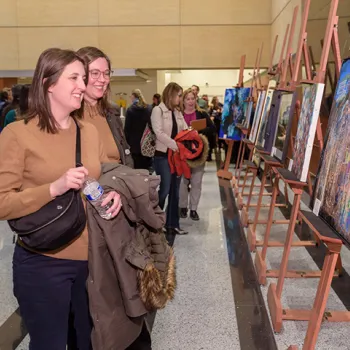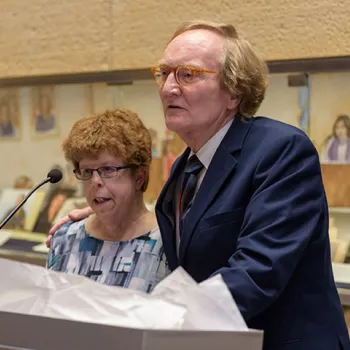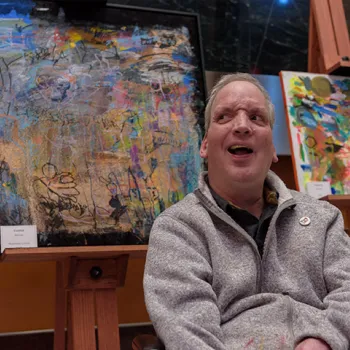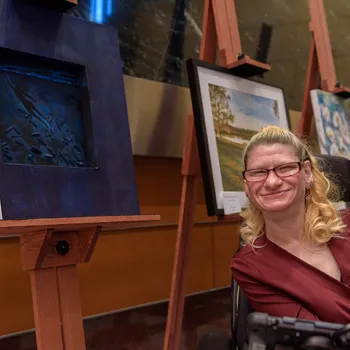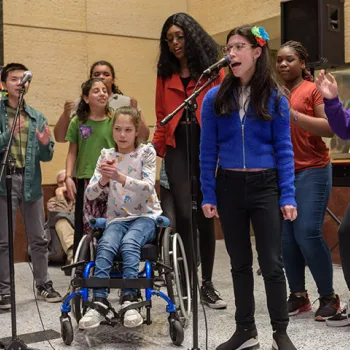Hundreds of lawyers and community members joined Minnesota federal judges in a recent courthouse event fostering awareness of disability rights.
The March event called, “The Unfinished Journey: Civil Rights for People with Developmental Disabilities and the Role of the Federal Courts,” was held at the Diana E. Murphy U.S. Courthouse in Minneapolis. It included a free continuing legal education (CLE) class for attorneys, followed by a public reception with an educational exhibit and art show of works created by artists with developmental disabilities.
“The true measure of a civilized and democratic society is the way we treat those individuals most in need and the most vulnerable amongst us,” said Judge Donovan W. Frank, of the District of Minnesota, who participated in the event. “A significant reason why disability discrimination continues, and why so many individuals continue to stereotype people with disabilities, is that they have not met individuals with disabilities, and they have not gotten to know people with disabilities, as I have had the privilege to do. When that happens, the stereotypes fall away, and then we all benefit.
“We are hopeful that our Unfinished Journey project will end the silence of so many and remind people that disability rights are civil rights. When that happens, the discrimination and stereotyping will end, and individuals with disabilities will receive ‘equal justice under law.’”
The evening reception unveiled a set of 20 educational banner displays on the history of disability rights in Minnesota, and the opening of “I AM,” the court’s newest juried public art exhibit. The juried installation includes 15 pieces selected by federal judges and artists from the disability arts community. The evening also included spoken-word and musical performances.
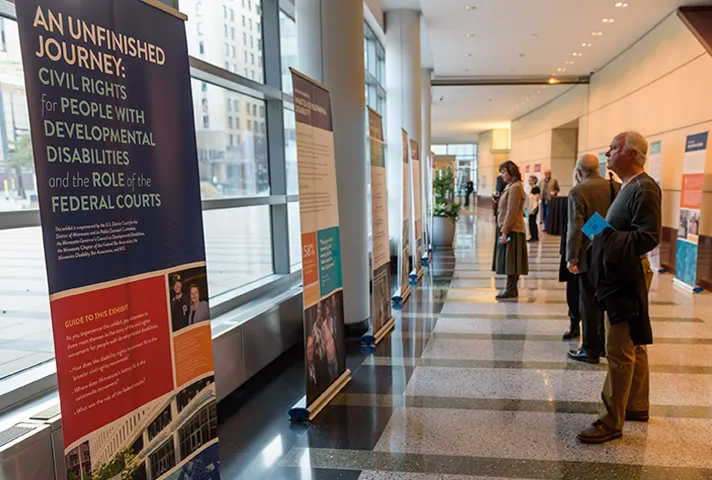
Visitors learn about the history of disability rights in Minnesota through a series of educational banners on display in the lobby of the Diana E. Murphy U.S. Courthouse in Minneapolis. Credit: Stan Waldhauser
“This event told the story of how well the United States government, including its courts, and the government of the State of Minnesota, including its courts, have fulfilled their moral obligations to our citizens with cognitive impairments,” said Chief Judge Patrick J. Schiltz, of the District of Minnesota, who spoke at the reception. “It is a story of triumph and tragedy, and a story whose ending has not yet been written.”
The court event was co-sponsored by the Minnesota Chapter of the Federal Bar Association, the Minnesota Governor’s Council on Developmental Disabilities, the Minnesota Disability Bar Association, and MSS, a nonprofit organization supporting individuals with disabilities.
The educational banners will be on display in the lobby of the Murphy Courthouse until July 17, after which it will move to the Warren E. Burger Federal Building and U.S. Courthouse in St. Paul. The art exhibit will be displayed at the federal courthouse in St. Paul from May 16 to July 18.
“Sadly, people with developmental disabilities have been subject to unfair labels, stereotypes, institutionalization, mistreatment, and abuse, well into the 20th century,” said retired U.S. Magistrate Judge Becky R. Thorson, who was instrumental in planning the event. “Though progress has been made, the journey is unfinished. The goal of the exhibit is to educate and inspire others to help complete the journey, so that people with developmental disabilities can thrive as vital and equal members of the community.”
Subscribe to News Updates
Subscribe to be notified when the news section is updated.

